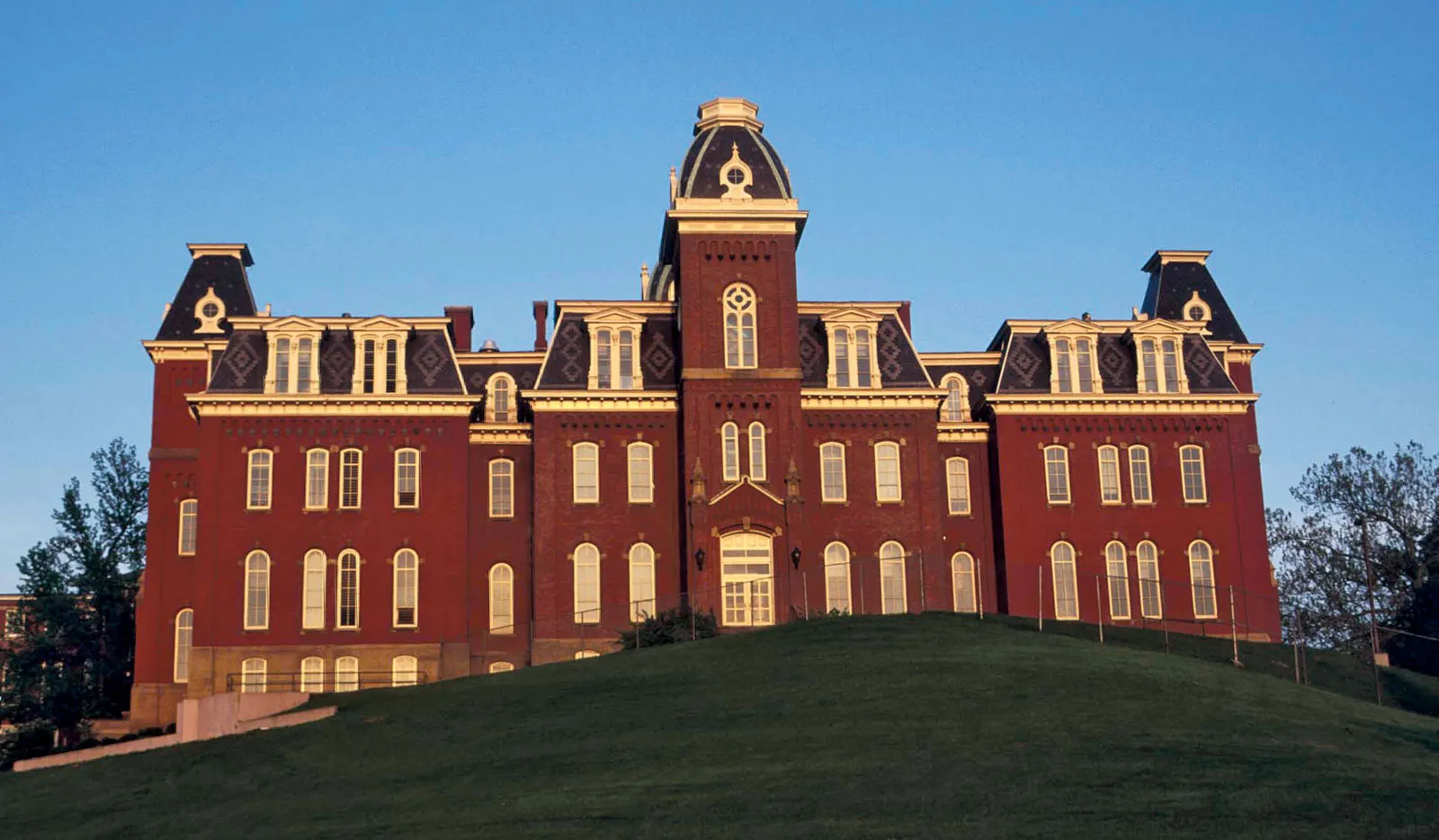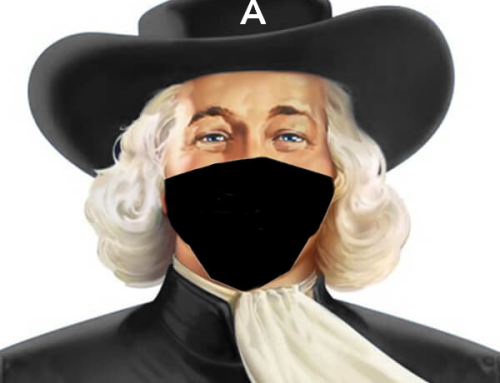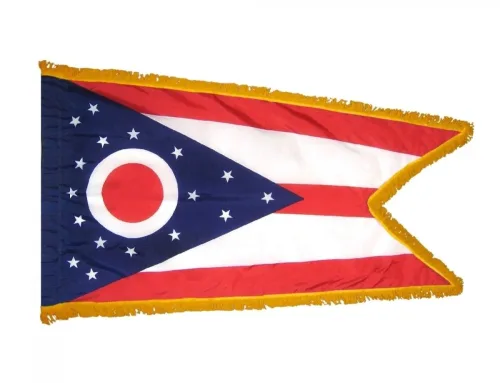Losing the entire world languages program may simplify a spreadsheet, but it will also send talented West Virginians outside state lines for better opportunities.
By Rachel Rosolina
Appalachia has an extraction problem. From coal to timber to clean water—and now our brightest minds—the natural resources of this mountainous region have been snatched from beneath us, profits pooling instead in faraway cities. We have long endured an economy governed by outside corporations and distant landowners, where the bottom line is king and calculated costs are worth the incurred loss. Despite being in a state with a storied history of forfeiting resources, West Virginia University has decided to risk a brain drain in lieu of a long-term solution to its budget shortfall. As a WVU alum, I thought we knew better than to sweep our own riches out the door.
In a confusing case of self-sabotage, WVU recently released preliminary recommendations to address its $45-million deficit, which would discontinue 32 majors—12 undergraduate and 20 graduate—and 169 faculty positions. Losing the entire world languages program may simplify a spreadsheet, but it will also send talented West Virginians outside state lines for better opportunities. Cutting a bachelor’s in recreation, parks, and tourism resources will close an obvious door on West Virginia’s future economic opportunities. Discontinuing the MFA in Creative Writing program, of which I am a proud graduate, will limit promising writers from exploring and sharing the underrepresented Appalachian region.
According to their stated portfolio review process, WVU’s shortsighted hack and slash approach centers on enrollment trends and whether a given area of study brings in research funding. This method highlights a profound misunderstanding of the importance of programs that don’t bring in research dollars—many of which are in the humanities—and the cultural necessity of creative outlets. Beyond nurturing essential skills such as critical thinking, communication, and problem-solving, the humanities are a delayed investment that encourages stronger relationships and communities. The act of creating has long been an Appalachian cultural marker of resistance, allowing us to control our own narrative amid outsiders’ labels, misrepresentation, and poverty porn. Consider Hazel Dickens’s mournful protest songs, Appalshop’s films documenting the aftermath of industrial accidents, and the many books celebrating the diversity of the region.
By ignoring root causes, WVU’s actions will be no better than those of the many extractive companies that came before. Except perhaps that it is more painful to watch such a loss stem from within the state. Instead of following its mission to create “a diverse and inclusive culture that advances education, healthcare and prosperity for all by providing access and opportunity,” WVU is pushing potential students away and limiting the very work that makes Appalachians resilient.
—
I know I’ve been lucky. Growing up homeschooled in the remote mountains of East Tennessee, I had no idea that creative writing was an educational option. I fell in love with regional literature at Berea College in Kentucky, but it wasn’t until I stepped through the stately doors of Woodburn Hall on WVU’s Morgantown campus that I fully understood my own power: here, words had gravitas. They were a tool to make sense of one’s past, a path to invite others in. And perhaps most important to me, as I had chosen WVU due to its location, Appalachian words in particular were to be treasured.
An obvious argument for the continuation of programs like the MFA in Creative Writing—which I am most familiar with—is representation. In my coursework at WVU, I was handed book upon book by writers who not only celebrated this region but also showed it as it was, without shame. My professors taught work from around the world, while highlighting the artistry flowing from these mountains. We had guest lecturers like West Virginian Ann Pancake. In her essay “Tough,” I experienced the impact of seeing myself in another writer’s words. Many classmates also went on to write their own books, like Sarah Einstein’s memoir Mot or Sarah Beth Childers’s Shake Terribly the Earth: Stories from an Appalachian Family. It was alongside these fellow writers that I felt pride in relaying the beautiful complexity of our region rather than relying on the quaint small-town takes or misinformed backwoods narratives invented by outsiders.
A more complex argument for finding a route forward other than cutting programs, however, is a question of value. Just as we have seen what our land and health are worth to coal and timber barons, we must also ask what our voices are worth. From the arrival of industry, the diverse people of this region have been told we are not good enough, not smart enough, that our accents are too strong, that we are not worth investing in—that we are worth actively stealing from. Appalachian value has always been in line with the profit we can turn for someone else, and WVU has seemingly bought into that worldview.
—
Academia has been shifting, quietly, for many years. Concerns about the impending enrollment cliff are whispered in meetings from the highest ivory tower offices to the basement of the libraries. Tenure-track professorships have morphed into adjunct positions, forcing academics to be consistently underemployed, many requiring several jobs to make ends meet in our current economy—especially in expensive college towns.
WVU’s approach to this industry-wide problem has been to gamble on expansions and enrollment goals not based in reality. At some point it realized that if it stayed on that path, the deficit could reach $75 million as soon as 2028. Unfortunately, in an attempt to quickly counteract these drawn-out mistakes, WVU is asking the wrong questions. It is tallying the ledger with neat lines and tidy columns, eliminating programs that may not bring in money but that do the important work of blurring lines, questioning authority, and making people feel. Blaming its financial shortfall on an enrollment cliff instead of a decade of poor decisions is a self-made escape route. It is, to put it in literary terms, an emperor making $800,000 a year with no clothes who is also looking forward to retirement.
Cuts like those proposed will have a domino effect. WVU is the largest university in West Virginia and the state’s only R1 school. With these drastic edits, West Virginia high schoolers will have fewer in-state options, which will lead to an exodus of talent. Once gone, the hurdle to coming home is that much greater. Also, by cutting graduate programs, WVU will face a lack of graduate assistants to help teach the entry level courses that remain. During my tenure at WVU, I taught English 101 and worked as the graduate assistant for West Virginia University Press. My MFA indirectly allowed me to shape freshmen worldviews, see firsthand how books are made, learn marketable skills, and kickstart my career in publishing.
So instead of looking at cold numbers, WVU’s decision-makers should be questioning the cost of loss. What voices will they silence? How many West Virginians will be disadvantaged due to lack of opportunity?
—
Appalachia is a geographically and culturally distinct area marked by the cancerous effects of extractive capitalism, and West Virginia is the only state completely within its regional borders. But while our ancient mountains may be isolating, their intricate green folds force a closer relationship with the land, a stronger sense of community, and a higher level of resolve. Regardless of what resources or opportunities are taken from us, we will overcome, as we always do. I just wonder what it would be like if our own leaders stood with us for a change.
Rachel Rosolina is an essayist with pieces in Still: The Journal, Women of Appalachia, Vessel Press, and more. With a bachelor’s degree in English from Berea College and an MFA in creative nonfiction from West Virginia University, Rosolina now lives in Bloomington, Indiana. After more than a decade in publishing, she works remotely as communications director for Appalshop, an Eastern Kentucky media and arts nonprofit centered around amplifying and preserving Appalachian voices.






